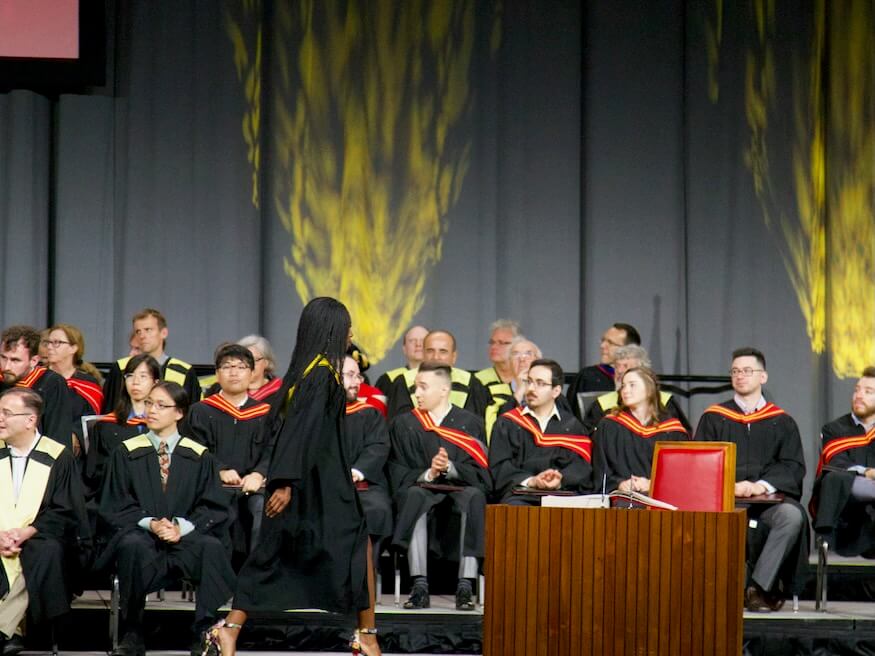Understanding why alumni donate to universities helps institutions build stronger connections and grow their support. Alumni giving is a critical part of university fundraising. Donations from former students provide essential funds for scholarships, research, campus improvements, and more.

Universities that tap into the motivations behind giving engage their alumni more effectively. These motivations vary but often reflect a mix of personal values, gratitude, and the desire to give back. By knowing these drivers, colleges and universities can tailor their fundraising efforts and deepen relationships with alumni.
1. Gratitude for Their Educational Experience
Many alumni give out of gratitude. Their university experience shaped their lives, opened doors, and provided opportunities. Giving back becomes a way to say thank you. Alumni who feel a strong connection to their alma mater want future students to enjoy similar benefits.
Gratitude is often tied to specific experiences such as great professors, scholarships, or supportive campus communities. These memories inspire alumni to contribute financially.
Innovative tools like Kindsight’s higher education fundraising software use big data and AI to help universities better understand alumni’s motivations and tailor their fundraising strategies for more effective donation asks.
Kindsight analyzes alumni engagement patterns, identifies key moments for outreach, and personalizes communications to strengthen emotional connections. This targeted approach has helped universities increase alumni giving rates and foster lasting loyalty.
2. Desire to Support Current and Future Students
Alumni understand the importance of education. Many want to help current and future students succeed. Donations to scholarships, mentorship programs, and academic resources reflect this desire.
Supporting students creates a lasting legacy. Alumni feel proud knowing their gift helps others access education. This motivation drives contributions that have a direct impact on students’ lives and success.
3. Strong Sense of Community and Belonging
Universities often foster lifelong communities. Alumni donate because they feel connected to this network of peers, faculty, and staff. This sense of identification with the institution strengthens loyalty and commitment, and was a factor that made alumni more likely to donate in a study of current and former post-graduate students.
Giving is a way to stay involved and support the community’s continued growth. Events, reunions, and networking opportunities nurture this feeling. Alumni who remain engaged tend to give more consistently over time.
4. Personal Financial Ability and Timing
Financial readiness plays a major role. Alumni are more likely to donate when they feel secure in their finances. Life milestones such as career advancement, retirement, or inheritance often trigger giving.
Timing also matters. Alumni may choose to give during campaigns or when the university faces urgent needs. Flexible giving options allow alumni to contribute according to their financial situation.
5. Trust in University Leadership and Transparency
Trust builds confidence. Alumni who believe their donations are managed responsibly are more inclined to give. Universities that demonstrate transparency in fundraising efforts and show clear impact reports earn alumni trust.
Communicating how funds are used, sharing success stories, and maintaining accountability strengthen this trust. Alumni want to see their gifts making a difference.
6. Emotional Connection and Nostalgia
Nostalgia plays a subtle but powerful role. Alumni often recall fond memories of campus life, friendships, and milestones. This emotional bond inspires generosity.
Anniversaries, class reunions, or special events can rekindle these feelings. Universities that evoke nostalgia in their messaging tap into a deep well of motivation to give.
7. Desire to Influence and Shape the University’s Future
Many alumni want to be part of the university’s future success. Donating allows them to influence priorities like new programs, facilities, or research initiatives.
This motivation reflects pride and commitment. Alumni want to leave a lasting mark on their alma mater’s legacy. Institutions that involve donors in decision-making or recognize their contributions foster this sense of partnership.
8. Tax Benefits and Financial Incentives
While not the primary reason, tax advantages influence giving decisions. Alumni who understand the financial benefits of charitable donations are encouraged to contribute.
Universities often educate alumni on these incentives, highlighting how giving reduces taxable income while supporting a cause they care about.
9. Social Influence and Peer Giving
Alumni giving is sometimes inspired by social norms. When peers, friends, or influential figures donate, others follow. This creates momentum within the alumni community.
Recognition programs, giving circles, and public acknowledgments leverage this dynamic. Universities that foster a culture of giving see higher participation rates.
10. Personal Connection to Specific Causes or Departments
Alumni often support particular academic departments, sports teams, or research centers. A personal connection to a cause motivates targeted giving.
This focus allows alumni to make a meaningful impact in areas that matter most to them. Universities benefit from promoting diverse giving opportunities aligned with alumni interests.
Understanding Why Alumni Donate to Universities
Alumni give for many reasons. Each is tied to personal experience, emotional connection, or a desire to make a difference. Knowing these motivations helps universities create stronger, more effective fundraising strategies. Here’s a quick summary of what drives alumni to give:
- Gratitude for their education: Many want to give back to the institution that shaped their lives.
- Desire to support students: Alumni often donate to provide opportunities for the next generation.
- Sense of community: Strong ties to campus and peers inspire long-term giving.
- Financial readiness: Life milestones and security influence when and how alumni give.
- Trust in leadership: Transparency and clear communication encourage continued support.
- Nostalgia and emotion: Positive memories fuel a lasting emotional bond with the university.
- Desire to shape the future: Giving lets alumni influence programs and institutional growth.
- Tax benefits: Financial incentives provide an extra push to contribute.
- Peer influence: Social circles and recognition programs boost participation.
- Connection to specific causes: Personal ties to departments or programs drive targeted giving.
Understanding these factors helps universities personalize outreach. Using higher education fundraising software then strengthens alumni relationships and supports long-term fundraising success.
People also read this: Revolutionizing Urban Space with a Mechanical Parking System

